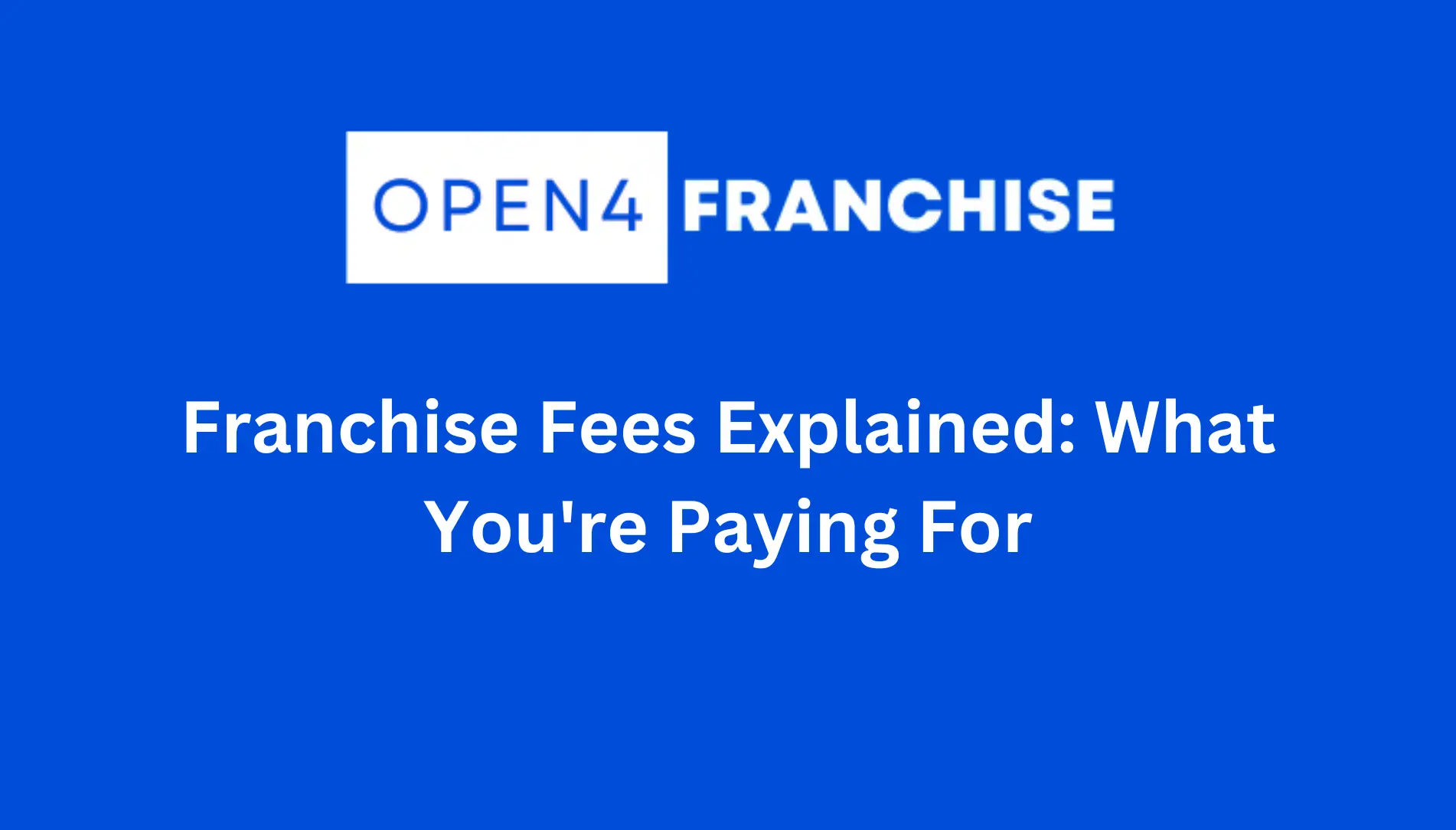Franchise Fees Explained: What You're Paying For
By Admin | 2024-12-12 14:46:20

Investing in a franchise can feel like stepping into a well-lit, pre-built path to business ownership. But along with this opportunity comes the concept of franchise fees—a cost that might initially seem daunting to potential franchisees. If you’re wondering what you’re actually paying for when you sign up for a franchise, this article will break it down for you in simple terms.
What Are Franchise Fees?
At their core, franchise fees are the upfront payment you make to join a franchisor’s network. Think of it as a membership fee to access a proven business model, brand, and support system. This fee is usually a one-time cost paid when you sign the franchise agreement.
Why Do Franchisors Charge Fees?
Franchise fees are how franchisors recoup the costs of developing and maintaining their business systems. This includes everything from brand marketing and research to training and operational support. Essentially, it ensures that the franchisor can continue providing the resources and tools franchisees need to succeed.
What Does the Franchise Fee Cover?
1. Brand Recognition
When you invest in a franchise, you’re buying into an established brand. The fee helps maintain the reputation, trademarks, and marketing campaigns that keep the brand strong and recognizable.
2. Training Programs
Franchisors usually offer comprehensive training for new franchisees. This includes business operations, customer service standards, and marketing strategies, ensuring you hit the ground running.
3. Business Model and Systems
You gain access to a proven business model, saving you the time and trial-and-error involved in starting a business from scratch. This includes everything from operational manuals to supply chain networks.
4. Initial Setup Assistance
Many franchisors help with site selection, design, and opening-day preparations, ensuring your business starts off on the right foot.
5. Marketing Support
Franchise fees often contribute to national or regional advertising campaigns, giving your business visibility without the need for independent marketing efforts.
Are Franchise Fees the Same for Every Business?
Nope! Franchise fees can vary widely depending on the brand, industry, and level of support provided. For example, a fast-food chain might charge a higher fee compared to a service-based franchise due to the complexity and scale of operations.
Ongoing Fees: Beyond the Initial Payment
In addition to the initial franchise fee, most franchisors require ongoing payments, such as:
1. Royalty Fees
A percentage of your revenue paid periodically (usually monthly). This funds continuous support and the franchisor’s profit.
2. Marketing Fees
An additional percentage allocated for regional or national marketing campaigns.
3. Renewal Fees
If you decide to renew your franchise agreement after the initial term, you may need to pay a renewal fee.
How to Evaluate If a Franchise Fee Is Worth It
1. Compare with Industry Standards
Research the average franchise fees in your chosen industry to determine if a brand’s fee is reasonable.
2. Assess the Support Provided
Look into what the franchisor offers in return. Extensive training, strong brand recognition, and ongoing support can justify higher fees.
3. Review the Franchise Disclosure Document (FDD)
This document outlines all fees and what they cover, giving you a clear picture of what you’re paying for.
Tips for Managing Franchise Costs
1. Plan Your Finances
Ensure you have not only the franchise fee but also working capital for initial operating expenses.
2. Explore Financing Options
Many franchisors have partnerships with financial institutions to help franchisees secure loans.
3. Negotiate
While not always possible, some franchisors might be open to negotiating fees, especially for multi-unit agreements.
The True Value of Franchise Fees
While the upfront cost might seem steep, franchise fees provide access to a wealth of resources that can significantly increase your chances of success. Instead of building a business from scratch, you’re investing in a tried-and-true system with ongoing support.
Conclusion
Franchise fees are more than just an entry ticket; they’re an investment in a proven business model, comprehensive support, and the strength of an established brand. By understanding what you’re paying for, you can make an informed decision and set yourself up for success.
FAQs
1. Are franchise fees refundable?
Most franchise fees are non-refundable, as they cover initial services and support provided by the franchisor.
2. Can franchise fees be financed?
Yes, many franchisors offer financing options or partnerships with lenders to help with the upfront costs.
3. Do all franchises charge the same fees?
No, fees vary depending on the brand, industry, and level of support offered.
4. Are there hidden costs in franchising?
Not if you carefully review the Franchise Disclosure Document (FDD). This document outlines all costs associated with the franchise.
5. Can I negotiate franchise fees?
In some cases, particularly with smaller or newer franchisors, negotiation may be possible, especially for multi-unit agreements.
About the Author
Hi, I'm the founder of Open4Franchise. I share business ideas, franchise opportunities, and tips to help entrepreneurs get started in the franchise world.